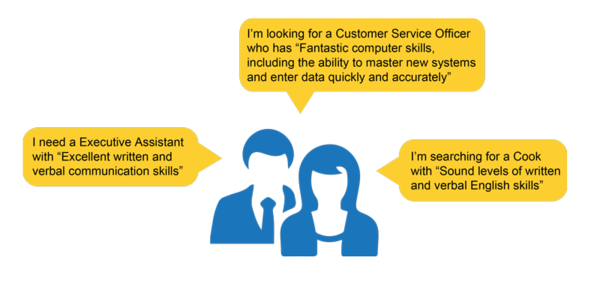In their submission to the Australian Government titled Critical Role of Blue Tech and Digital Skills in Australia's Economic Recovery, TAFE Directors Australia, CISCO Systems and Optus highlight the rapid shift to digital technologies which was prompted by the COVID-19 pandemic, and stated that for all Australians to be able to participate and contribute to economic and social development, they will require some degree of digital literacy.
The submission report from TAFE Queensland to the Standing Committee on Employment, Education and Training revealed the period of remote working introduced across business sectors during the COVID-19 lockdown exposed the extreme shortage of digital skills and knowledge amongst a broad spectrum of the population. Digital technologies are increasingly embedded in all aspects of working practices, and the widespread automation of routine tasks in many workplaces is also leading to the disappearance of roles traditionally available to those with lower levels of literacy and numeracy. The submission states that to provide ongoing, realistic employment prospects to all Australians, it is vital that a revised approach to adult literacy aims to improve literacy and numeracy levels across the board.
Foundation skills are one of the Australian Government’s priorities for skills development:
- Announced as part of the Delivering Skills for Today and Tomorrow package in May 2019, the Foundation Skills for Your Future Program commenced in April 2020 and has the aim of assisting people who are employed but need their language, literacy, numeracy and digital literacy (LLND) skills enhanced to enable them to engage in higher skilled work or training.
- The Skills for Education and Employment (SEE) program, which replaced the Language, Literacy and Numeracy Program in 2013, is the Government’s primary program for helping eligible job seekers to improve their LLN skills.
As part of the government’s COVID-19 response, the Foundation Skills for Your Future Program has been enhanced to allow the development and delivery of online resources and the SEE program will be funded for an estimated additional 14,485 places. The Australian and State and Territory Governments have all included additional assistance for business owners, their employees and those who need to upskill or reskill to access training in digital skills in their COVID-19 recovery plans and/or budgets.



